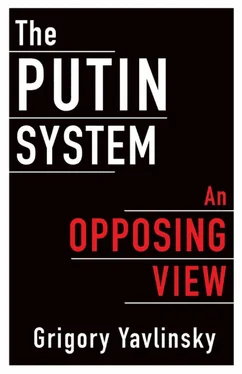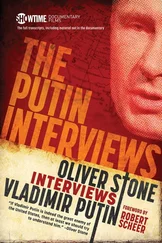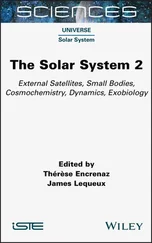In the first decade of the new century, however, the situation changed. On the one hand, the socioeconomic inequality that became rampant in the 1990s and, most of all, the illusory character of the notion of mass-scale private entrepreneurship as a means of raising Russians’ incomes drastically reduced the appeal of the ideology of “market reforms.” [5] I will not discuss here the extent to which the principles on which Russia’s new economic system was being built were actually market-based. I addressed this subject in many of my prior works.
On the other hand, societal fatigue from the uncertainties and inconveniences associated with the drastic changes in the social and professional organization of society in the 1990s generated popular demand for stability and predictability. This was further reinforced by the mass disenchantment with every kind of rhetoric; whereas in the 1980s many Russians had viewed freedom of speech as a key to progress, by now it turned out that free speech per se provided neither tangible goods nor genuine changes in the life of society. Thus, in the first few years of the twenty-first century, as the authoritarian rule was consolidating and becoming aware of its power and maturity, its ideological persona was becoming less and less distinctive.
For example, the rhetoric of market reforms and the anticommunist fervor of the mid-1990s have disappeared from government officials’ speeches and pronouncements. References to their commitments to democratic values and to upholding political rights and freedoms also gradually receded into the background. At the same time, while official rhetoric now includes a tinge of nostalgia for Soviet times, it has led to neither a restoration of Marxism as the state ideology nor a clear shift toward a Western European–style leftist socialist ideology. Instead, Russia’s newly minted authorities were more inclined to portray themselves as centrists, committed to practical constructive work and real-life concerns that reflected the interests of the people (in contrast to the “chatterboxes” of the opposition). Such an ideological posture enabled the ruling circle to recruit people of widely ranging ideological leanings and a variety of political backgrounds. It also provided the requisite flexibility to engage a broad spectrum of relevant groups and strata of society without completely alienating any large, influential circles of professional people.
The beginning of the rapid rise of Russians’ incomes and of the financial capacity of the state at the start of the twenty-first century was another contributing factor. It enabled the ruling circle to instill in society optimism about its future and to distribute various handouts in exchange for recipients’ reluctant acceptance of the government, without demanding of them a uniformity of ideological views. In a certain sense, the ideological passivity of the Kremlin in the mid-aughts indicated the strength of its position. As the volume of financial transactions in the country grew, and while the authorities had the power to control these flows, it was unnecessary to look for an additional ideological means to bind people to the authorities and ensure their self-perpetuation in power. The Kremlin was too confident and at ease with the situation to step upon the slippery slope of the quest for some official ideology; instead, it opted for the vague and eclectic rhetoric of just “working for the benefit of the people and the country.” Only by the end of the aughts did it become evident that the period of nearly automatic rapid growth of incomes was coming to an end (it was simply too good to be true for too long, for objective reasons) and that the opportunities for the appropriation and distribution of administrative rents had hit their limits. It was then that the ruling circle became conspicuously more active in its pursuit of additional ideology to prop itself up.
An additional impetus for this pursuit was that the decrease in economic opportunities caused by the petering out of income growth coincided with the election cycle of 2011–2012. In a system in which elections are essentially an extraneous element, an implant from another political model, the mere holding of elections, with the inevitable campaign agitation by every political force, generates additional tension within the system, regardless of the authorities’ confidence about their position and their control over the outcome of the elections. In addition, the rising pitch of political debates, which previously had been rather listless, now had the potential to influence the minds of the masses in ways that were undesirable for the authorities. The intensity of these debates could possibly awaken faint rumblings under the surface of society, and soon, in an unexpected situation, people might be ready to support so-called extremists capable of undermining government control over the situation in the country.
Given all this, in the early 2010s, Russia’s authorities became noticeably more interested in developing a more distinctive ideological stance. The direction of this quest emerged spontaneously and pointed toward a conservative, status quo ideology of defending the authorities as the only personification of Russia’s national interest and of resisting all political change. This is the direct reason for all those ideological trends that were plain to see after 2010 and that we continue to observe today. Let me enumerate the most prominent among them.
First, the Russian government engaged in relentless propagandizing of the need for “strong power.” In this framework, “strong” means not so much effective or capable of maintaining law and order; rather, it means a power that is not to be questioned, that is untouchable and has some mystical underpinning equating it with statehood and nationhood as a whole. [6] Some Russian commentators explain “strong power,” as understood by the present ruling circle, as being independent of the society it governs. This is also true. However, the main distinctive feature of a strong power, from the Kremlin’s point of view, is its ability to suppress any threats to its capacity to govern and any doubts regarding its right to do so.
In this new framework, the state is not just equal to the powers that be; it is a function of their activities. So an assault upon the ruling circle is viewed as an attempt to destroy the state itself. Essentially, the Kremlin has taken up the idea of autocracy—not as it was known in the Romanovs’ imperial Russia but in the meaning that it takes in political Eurasianism. This involves a deification of power as sacred in itself and not accountable to any institutions. It is presented as allegedly the natural and sole form of existence of Russia’s statehood and the only one that safeguards Russia against extreme polarization and the fragmentation of society.
Officially, the system holds on to elections as a form of legitimation of the country’s supreme authorities. Yet, ideologically, elections are presented not as an opportunity to select one of several candidates competing with one another on an equal basis but as a selfless, heroic struggle of Vladimir Putin, the sole and unrivalled tsar and leader of the nation, against presumptuous attempts by outsiders, impostors, to take the throne away from its legitimate holder. Hence the conspicuous absence of the “Chief Candidate” from presidential debates (since the autocrat cannot bring himself down to the level of personal debate with impostors); hence the aura of majestic grandeur in government media’s presentation of this candidate; hence the emphatic support from senior clergy of Russia’s top religion, the Orthodox Church of the Moscow Patriarchate. In this framework, elections of the chief of state turn into an expression of the people’s support for the authorities—which meets everyone’s expectations and is encouraged through a variety of means. This demonstration of support is based not on a hardheaded assessment of the quality of governance and the resulting quality of life but rather on the notion of defending the powers that be, as the personification of the state, against their weakening, whether willful or accidental, by various “schismatics.”
Читать дальше












